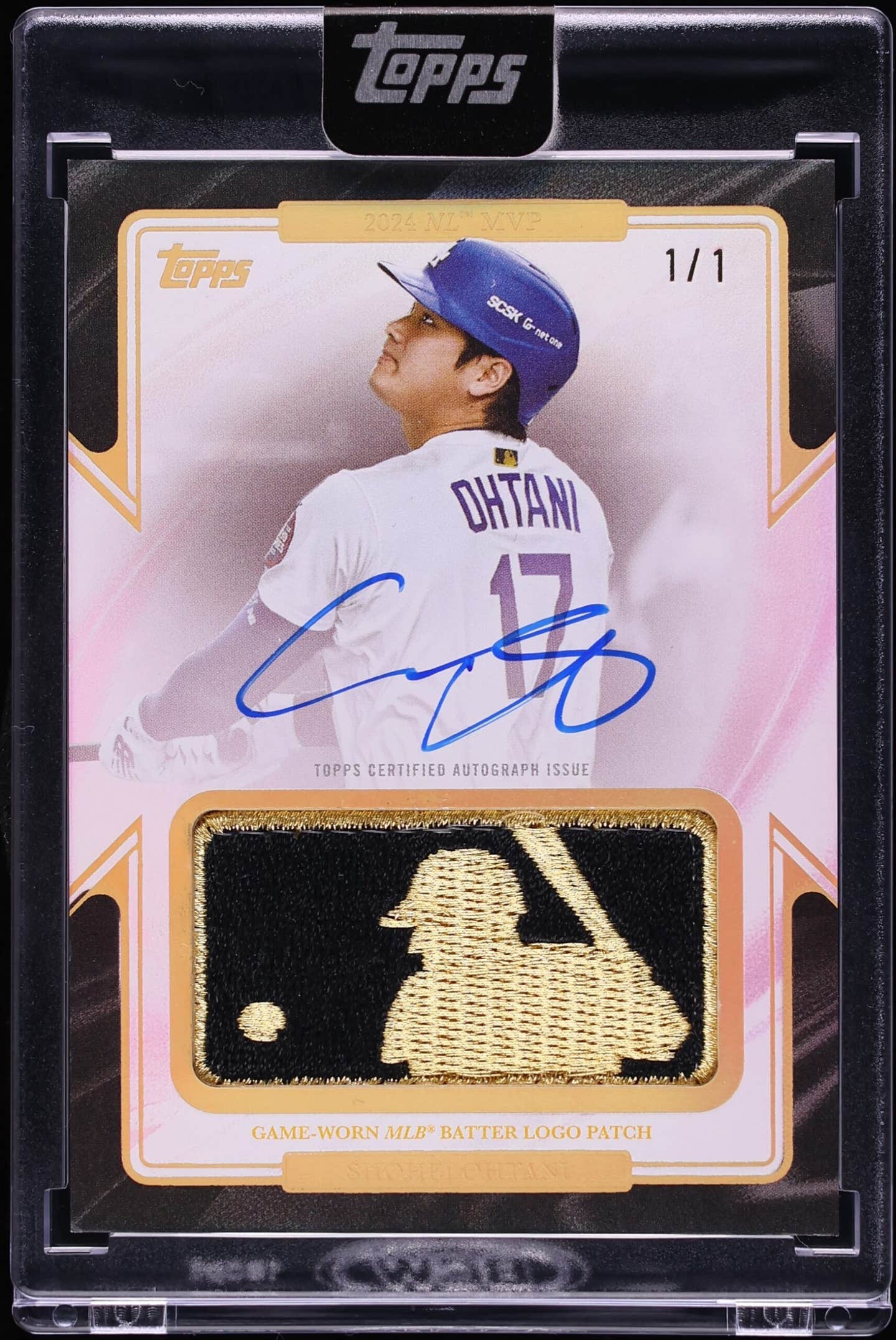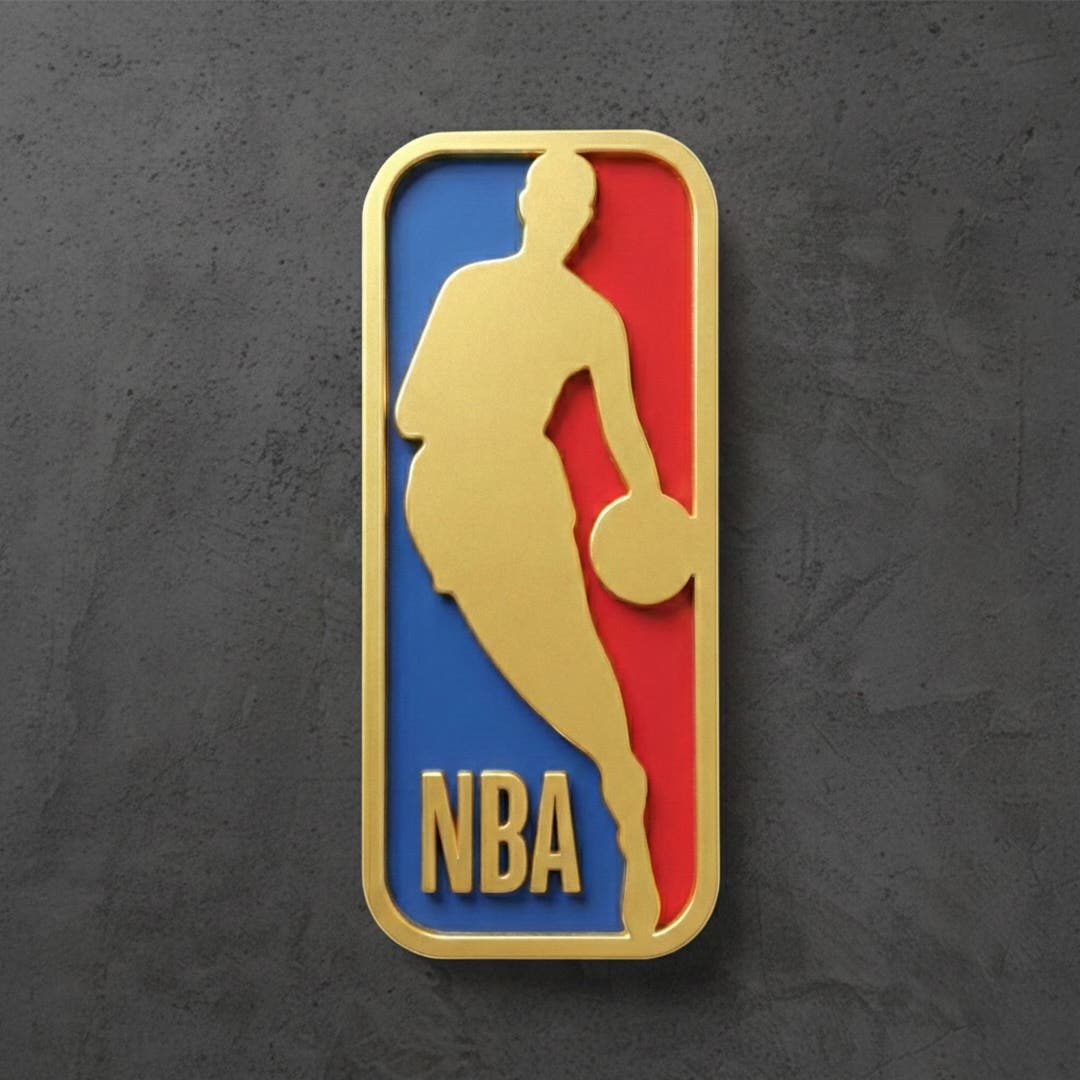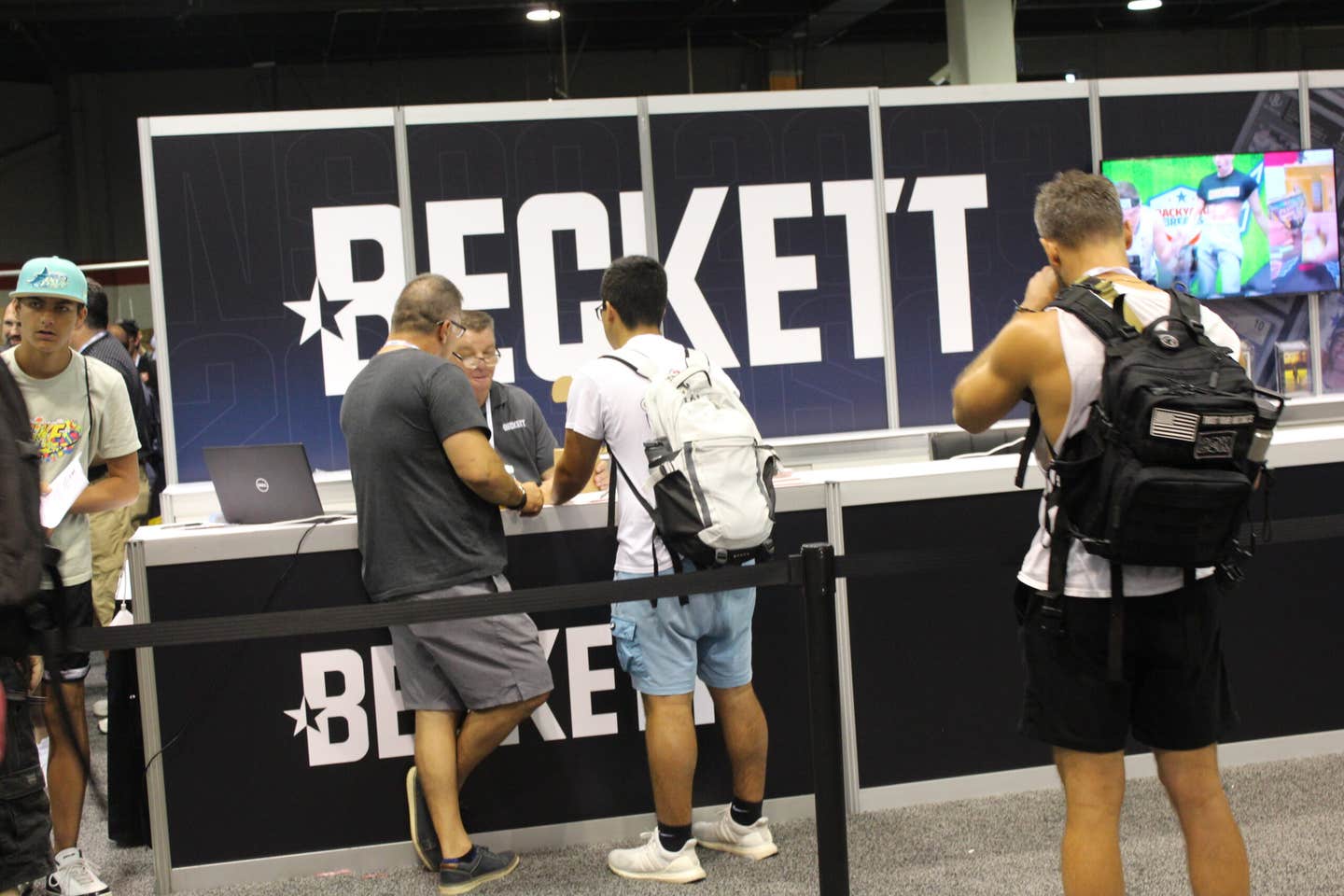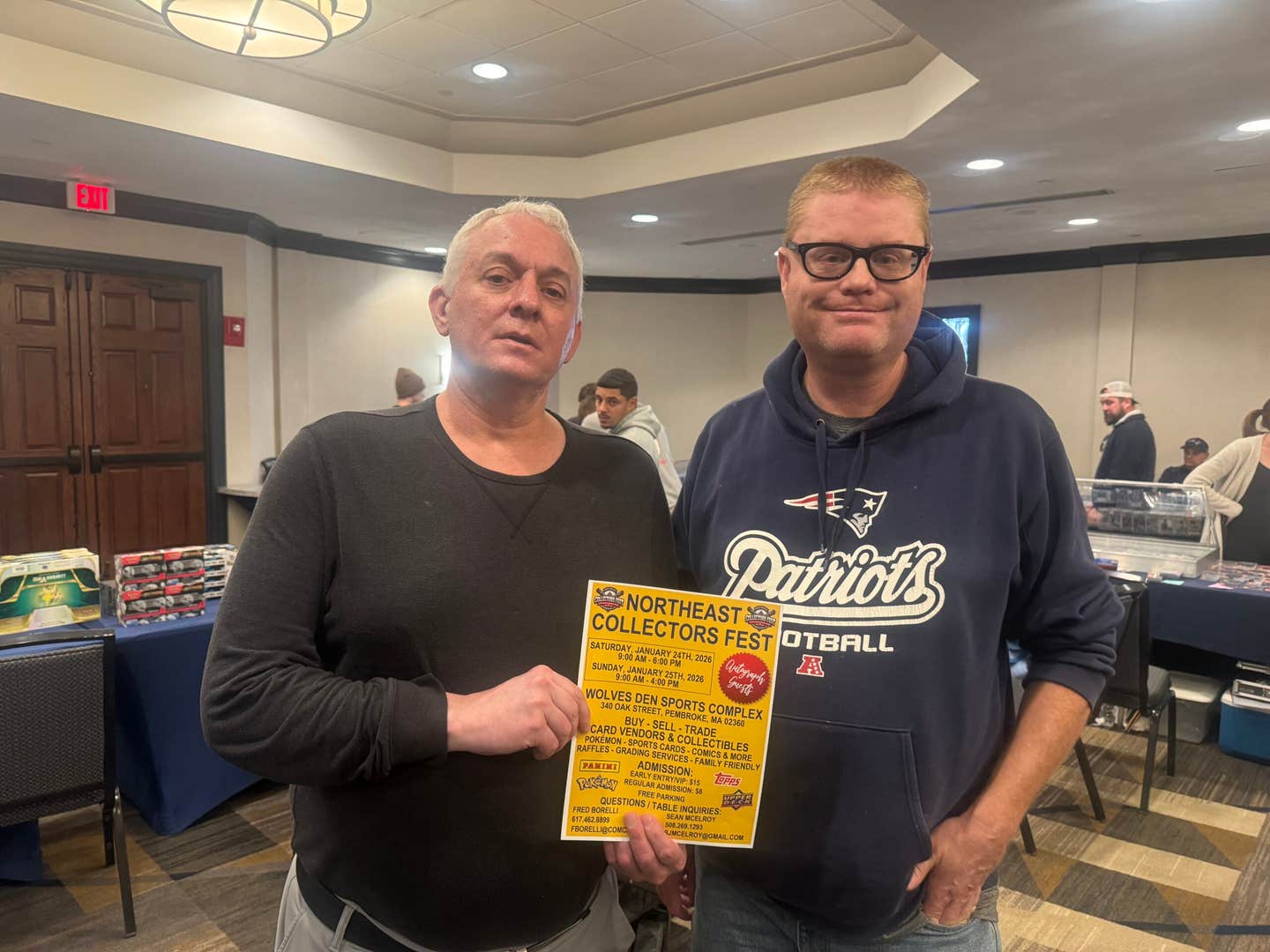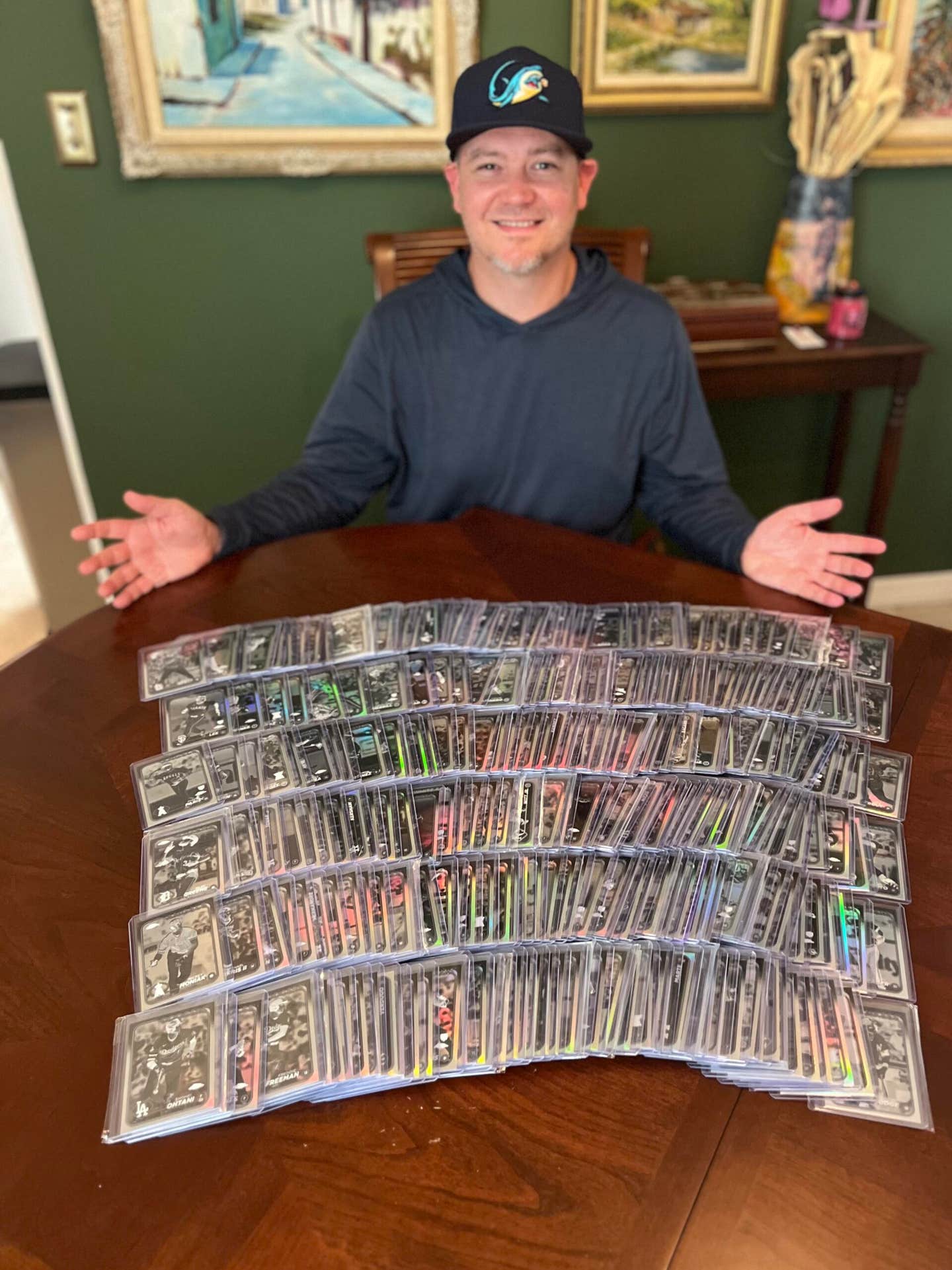Cards
And then there was one … MLB sacks Upper Deck …
Nature may, indeed, abhor a vacuum, but for news hounds like myself, it merely offers more inches for speculation and opinion all nicely gussied up to look like analysis. With that ponderous caveat in place, I sally forth to discuss the breaking news that Topps will be the exclusive baseball licensee from Major League Baseball starting next year.
Whew! Probably by the time this gets into print in Sports Collectors Digest more will be known, but at the moment there’s little more than the bald fact, provided courtesy of the nation’s newspaper, the New York Times.
In a Richard Sandomir bylined story this morning on the www.nytimes.com site, the Times reported that Topps will become the exclusive trading card maker of Major League Baseball next year in a multiyear deal. The details presumably will come today.
Well, after three decades of hobby rumors, one of them finally came true. The idea that MLB might opt for an exclusive arrangement for trading cards much as it does for other consumer products (i.e. official car, soft drink, credit card and cap) has been percolating for several years now and the announcement expected today probably will not be as surprising to some as to others.
Approaching the 30th anniversary of the 1980 U.S. District Court ruling that ended a 25-year Topps monopoly in the baseball card market, the new exclusive arrangement is thought to be a response to far-ranging consumer confusion as the number of card sets (and insert cards within those issues) expanded to dizzying heights roughly since the ill-fated labor woes of 1994.
The Times noted that by dropping Upper Deck, M.L.B. hopes that Topps, under Michael D. Eisner, the former chief executive of the Walt Disney Company, can invigorate card collecting, especially with young fans.
“This is redirecting the entire category toward kids,” Eisner is quoted in the article. “Topps has been making cards for 60 years, the last 30 in a nonexclusive world that has caused confusion to the kid who walks into a Wal-Mart or a hobby store. It’s also been difficult to promote cards as unique and original.”
Sandomir reported that Upper Deck, at the moment the sole surviving baseball licensee other than Topps in a cardboard cartel that once numbered a half dozen, would not comment on the Topps deal, other than to a point to a July 9 press release from the Carlsbad, Calif.-based cardmaker announcing the renewal of a trading card license with the Major League Baseball Players Association for 2010.
Upper Deck officials told The Times that the company would keep producing cards, and the July 9 announcement included the information that the first release under the renewed license would be Upper Deck Series One Baseball, slated to launch in early February.
It’s more than a little intriguing to ponder the possibility of the release of that product, which traces its ancestry back more than two decades to the revolutionary Upper Deck inaugural issue in 1989, being done without inclusion of the Major League Baseball insignias and trademarks. The MLBPA agreement from last month grants Upper Deck the rights to use player likenesses, but losing the ability to picture the players in their natural habitat, in a manner of speaking, poses a host of thorny problems for a card manufacturer.
Producing sports cards without benefit of official league indicia and accoutrement has a lengthy and occasionally comical history in our hobby, though much of the hilarity stemmed from reasons other than exclusive contracts. Collectors – even as kids – used to turn away in horror at closeup portraits of capless journeymen, often pictured thusly because Topps was reacting to late-season trades or franchise movements. This time the challenge would seem even more daunting for a collecting public and hobby that’s a good deal more sophisticated in this millennium than it was in the last one.
It’s also an area that seemingly is a bit murky in the legal sense, with the possibility existing that manufacturers could even challenge licensing arms about the inviolability and scope of the licensing restrictions themselves.
See how much fun it is when there’s an imposing dollop of genuine news and not many folks on the official side offering comment.




